Cambridge tramcar restored by Ipswich Transport Museum
- Published
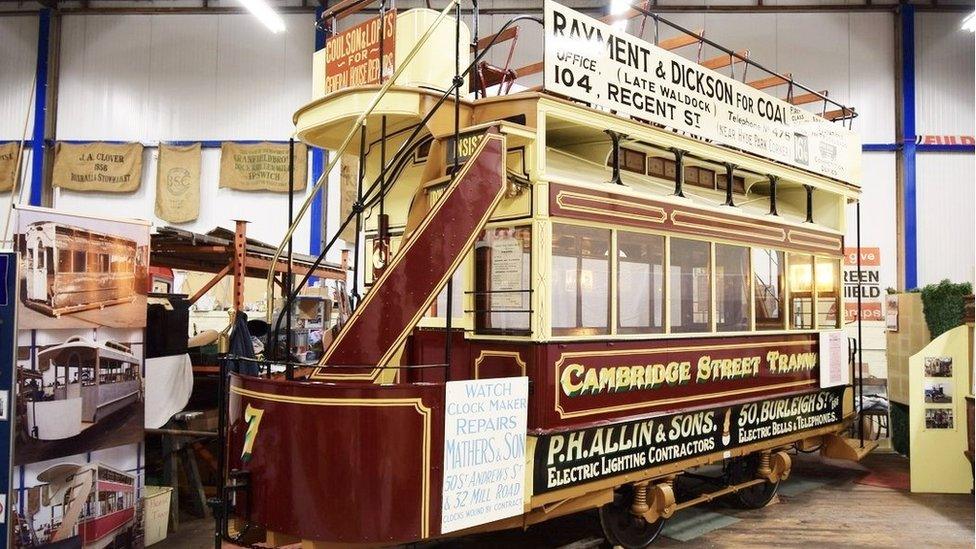
The horse-drawn tram has been given a new life by Ipswich Transport Museum volunteers
A horse-drawn tramcar, which was used as a shed for 74 years, has been restored.
The wooden vehicle was withdrawn from service in Cambridge in 1914, and was used as a workshop in nearby Ely before the restoration project started eight years ago.
It has been given a new lease of life by Ipswich Transport Museum volunteers.
The team, which worked from black and white photographs, said it had been a "real challenge".
"There wasn't much to go on and no-one remembers what they looked like," said Mel Ringer, one of the volunteers.
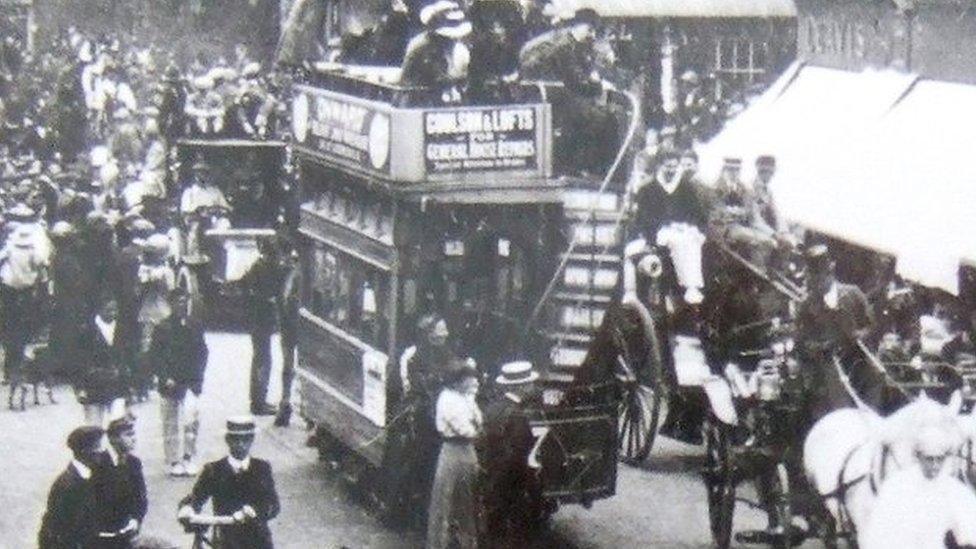
The wooden vehicle was withdrawn from service in Cambridge in 1914
The restoration has involved 10,000 hours of work, the team said.
One particular challenge they faced was replicating the second tier, as the tram had lost its upper level, which had initially been added in the 1880s.
The project was funded by a £50,000 Heritage Lottery Fund grant.
It will go on display in the museum, external next year.
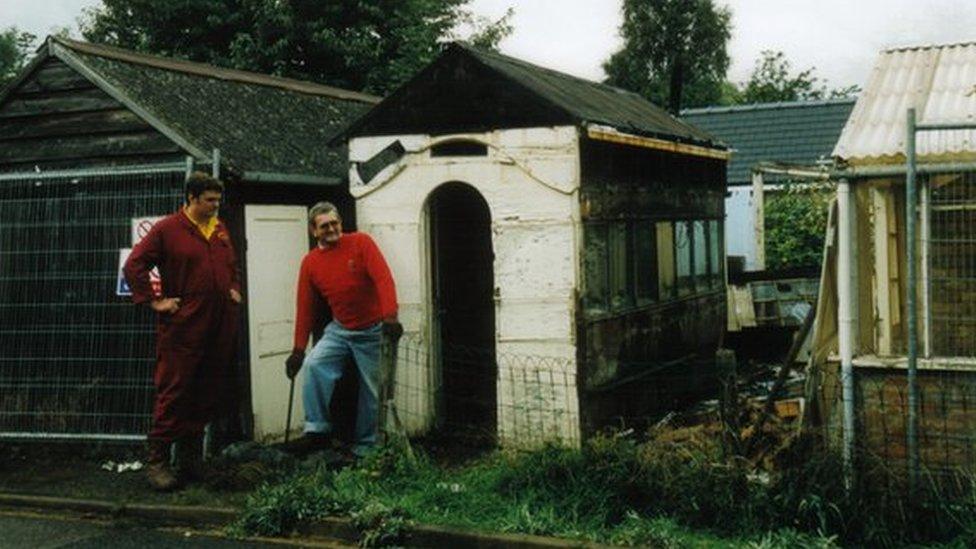
The tramcar was being used as a cobbler's workshop in Ely
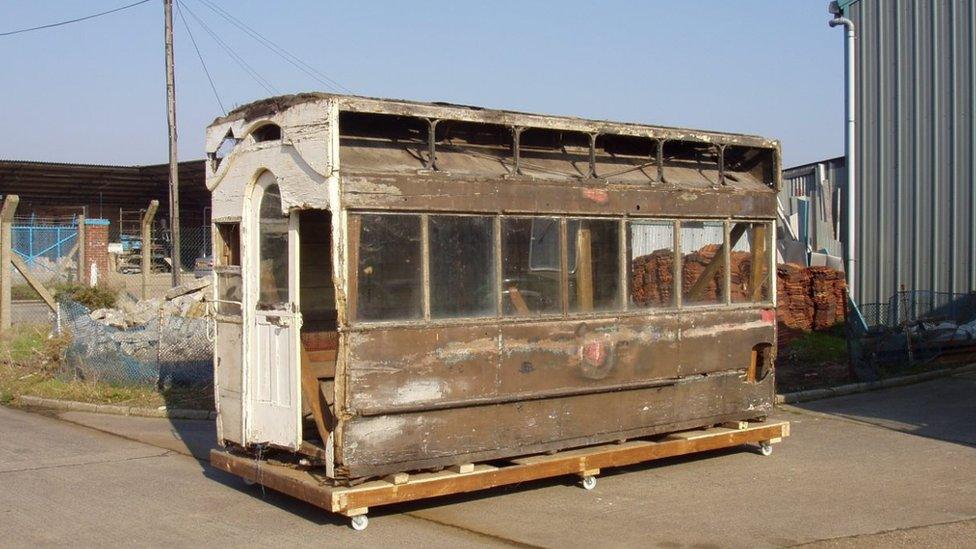
The volunteers faced a "challenge" when the tramcar arrived in Ipswich
The museum said the Number 7 horse-drawn tramcar had started life in Bath but the hills there were "too steep" so it was sent to Bradford where it was hauled by a steam engine.
It stopped being used after four years, but eventually found its way to much flatter Cambridge in 1894.
When the vehicle was withdrawn from service, it was sold to be used as a shed, and then in about 1988 it was found at Ely being used as a cobbler's workshop.
The museum said, as far as it knew, it was the only remaining East Anglian horse tramcar.
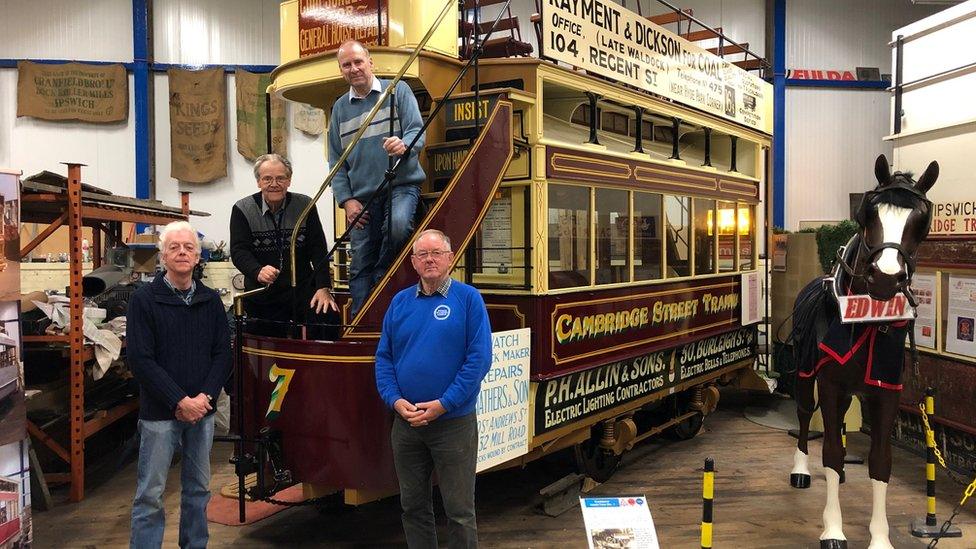
The tramcar has been restored by a team of volunteers
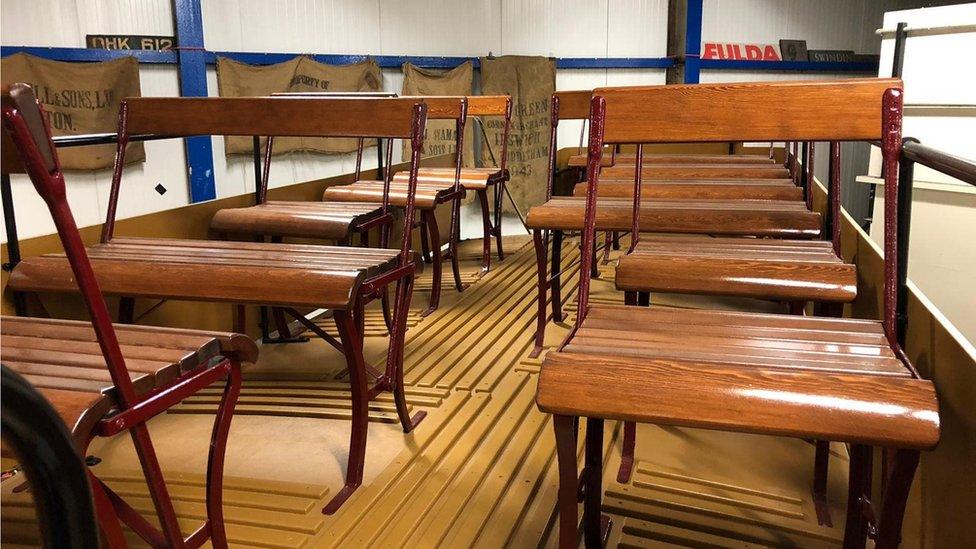
Horse-drawn trams in Ipswich were replaced by electric trams running on tracks, which in turn were replaced by electric trolley buses running on wheels and the tarmac
Volunteer John Griffiths said Ipswich Transport Museum "wouldn't normally do a Cambridge tram but there aren't any Ipswich ones".
He said there was a possibility the Cambridge one was going to be destroyed "so it seemed a shame to allow that to happen".
The museum has electric trams and trolley buses, and this tram, which is the same age and design as the ones which ran in Ipswich from the 1880s until 1902, will complete the set, he said.
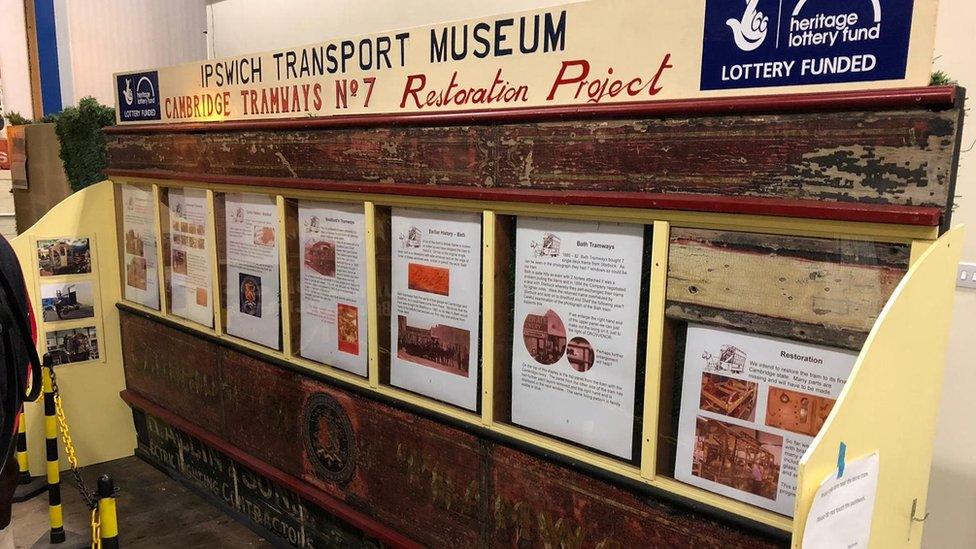
The project received a £50,000 grant from the Heritage Lottery Fund
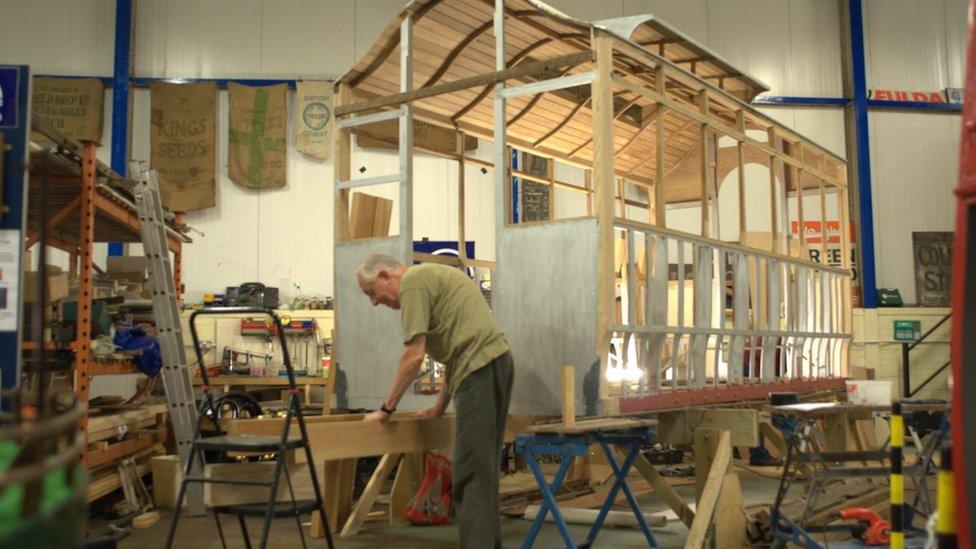
The volunteers spent 10,000 hours working on the tram
.
- Published11 April 2014
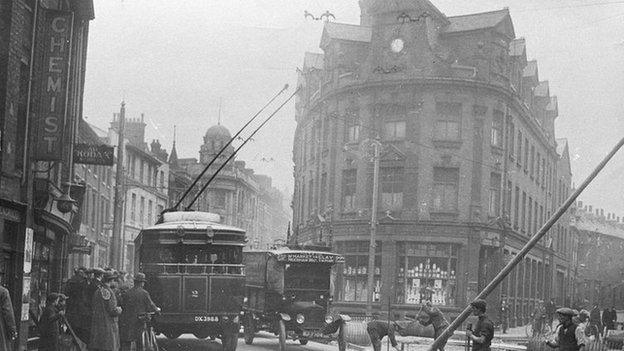
- Published27 May 2013
(587x800).jpg)